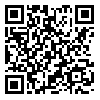BibTeX | RIS | EndNote | Medlars | ProCite | Reference Manager | RefWorks
Send citation to:
URL: http://ijme.tums.ac.ir/article-1-5786-en.html
2- Department of Chinese Traditional Medicine, School of Complementary and Traditional Medicine, Mashhad University of Medical Sciences, Mashhad, Iran
3- Department of Persian Traditional Medicine, School of Complementary and Traditional Medicine, Mashhad University of Medical Sciences, Mashhad, Iran
Traditional and complementary medicine centers, as providers of health services, have a special responsibility towards patients and clients. With increase in the number of these centers, the role of traditional and complementary medicine has become more important in the analysis, diagnosis, and treatment of illnesses. The accurate and fast performance of medical approaches using evidence-based diagnostic and therapeutic procedures, with consideration of the rights, integrity, and dignity of clients are among the priorities and necessities that can have a significant impact on the satisfaction and acceptance of the scientific and legal institutions, parallel to the deployment of new services provision systems. Lack of sufficient scientific evidence of efficiency and effectiveness, lack of definition and determination of authorities to handle complaints, the legal process of ethical and legal aspects of medical errors has caused challenges for the field of complementary and alternative medicine. Thus, this legal void must be filled through formulation and revision of laws and regulations, defining of the practical and acceptable set of scientific resources, and determination of authorized service centers to resolve complaints and to punish. It is hoped that the results of this review study increase the information of the professionals in this field and attract the attention of authorities of medical ethics to this field.
Received: 2016/07/24 | Accepted: 2016/09/11 | Published: 2016/10/3
| Rights and permissions | |
 |
This work is licensed under a Creative Commons Attribution-NonCommercial 4.0 International License. |





